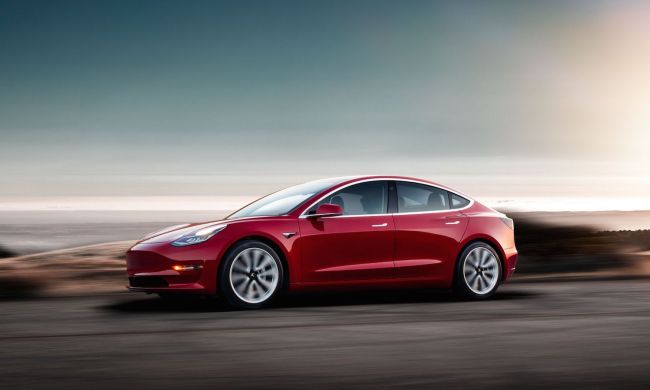Volkswagen has experimented with the idea of making a modern version of the emblematic, hippie-friendly Bus several times. We’ve seen a string of concepts, including the 2001 Microbus and the 2011 Bulli, but none have received the proverbial green light for production. The timing is finally right, and the wait is almost over. Volkswagen is busily transforming the I.D. Buzz concept introduced in 2017 into a van you’ll be able to buy and drive. It will be electric, and it’s tentatively due out in showrooms in 2022. Here’s everything we know about it.
What is it?

Keep in mind that Volkswagen hasn’t introduced the production version of the modern-day Microbus yet; it hasn’t even released the model’s name yet. The aforementioned I.D. Buzz concept (shown above) sketched an accurate outline of the model, but every part of it (including the design and the specifications) will change at least slightly in the coming years. That’s par for the course when it comes to concept cars. With that said, the heritage-laced design will remain, and Volkswagen confirmed the production model will ride on the highly modular MEB platform.
Stylists drew a visual link between the Buzz and its predecessors by adopting styling cues such as a two-tone look, tall quarter windows integrated into the front doors, and air vents cut into the rear roof pillars. They stopped short of giving the concept a split windshield and round headlights, but the concept is retro enough to be recognizable as a modern interpretation of the rear-engined, Beetle-based original introduced in 1950 and built until 2013 in Brazil.
What’s it like inside?

Its cabin is as spacious as you’d expect from a big, boxy van. It offers space for up to eight passengers spread out over three rows of seats, and rails integrated into the wood floor let users configure the interior in a variety of different ways. These features were illustrated by the concept, and we expect to see them in the production model, too. The front seats pivot 180 degrees to create a spacious, living room-like atmosphere.
It’s reasonable to assume a long list of adventure-friendly accessories (like camping tents) will be available, either from Volkswagen or from aftermarket vendors. The Buzz will be as versatile as the original rear-engined Bus.
Can it also haul cargo?

Like its predecessor, the Buzz will be available in people- and cargo-carrying configurations. Volkswagen unveiled the latter — again, as a close-to-production concept car — in Los Angeles in 2018. It’s nearly identical to the eight-seater model, but it doesn’t have windows or seats. Instead, opening the rear doors reveals a large storage compartment with a perfectly flat loading floor and a 230-volt outlet that draws electricity from the battery pack to run power tools. This feature turns the Buzz Cargo into a mobile workshop with a usable 1,760-pound payload.
Is it still rear-engined?

Sort of. In its standard configuration, the MEB platform features a single electric motor mounted over the rear axle. Under the Buzz, it offers two motors (one for each set of wheels) that draw electricity from a huge 111kWh lithium-ion battery pack to deliver 369 horsepower. Volkswagen quotes a 270-mile driving range. The company also explained it would be relatively simple to create a more basic, rear-motored version of the concept powered by a smaller, 83kWh battery pack and a single, 268hp motor out back. No gasoline-powered model is planned, however.
While the much-loved Beetle-based original logged a zero-to-60-mph time of “eventually,” the Buzz performs the benchmark sprint in five seconds flat. Its top speed is electronically limited to 99mph.
Can it drive itself?

To an extent, yes. Volkswagen is developing the Buzz with partially-automated driving in mind, and it teamed up with the government of Qatar to deploy a fleet of autonomous prototypes during the 2022 FIFA World Cup in Doha. It agreed to work hand-in-hand with the Qatar Investment Authority to develop the physical and digital infrastructure required to put autonomous vans on Doha’s roads. While details about the project haven’t been finalized, it helps that Qatar is a dry, sunny place where prototypes won’t have to navigate ice, snow, or fog.
Thirty-five shuttles will receive Volkswagen’s level-four driving system, which corresponds to technology that lets the driver take both hands off the wheel and both eyes off the road when the right conditions are met. Whether this feature will be available on the production version of the Buzz remains to be seen, but it’s undeniably a step toward autonomy.
When can I buy one?

Volkswagen launched the MEB platform under the ID.3, a Golf-sized hatchback developed primarily for the European market. It will soon underpin a Tiguan-sized crossover named ID.4 that will be sold (and, later, built) in the United States. These are higher-volume models than the born-again Microbus, so they’re higher up on the firm’s list of priorities. The van is tentatively scheduled to make its debut in 2022, and it will enter production shortly after.



